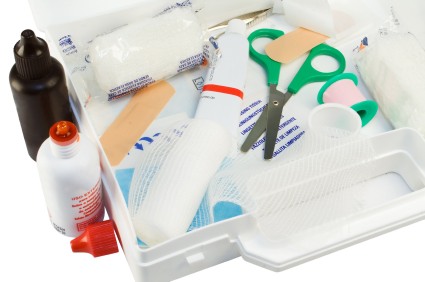
Net Signs to Watch Out For [Illustration by Shiju George]
And yet, this very freedom sometimes unwittingly lands them in situations not of their own making, especially on the Net that bestows a veil of anonymity on everyone.
For a pre-teen child, it is hard to make sense of situations or to read between the lines. For instance, how will the child be able to make out the ulterior motives of an elderly paedophile presenting himself as a friend in the many chatrooms that abound on the Net?
Looking for a site on the White House or the US president’s residence, if the child stumbles upon a pornography site with a similar name, what would be the impact of that experience on her/him? For at that age, the child does not have the requisite maturity to be able to make out the specific from the general.
That is why it is important for parents to keep some pointers in mind while their child discovers the Net at home to ensure as far as possible that it is a constructive discovery of the world.
Listed below are some pointers to keep in mind while your child surfs the Net at home.
- Your child spends large amounts of time on-line, especially at night.
Children may fall victim to computer-sex offenders while spending long periods of time on-line, particularly in chat rooms. They may go on-line after dinner and on the weekends. They may be latchkey children whose parents have told them to stay at home after school.To beat their boredom or depression, they may go on-line to chat with friends, make new friends, pass the time and sometimes even to look for sexually explicit information, out of curiosity. A lot of information can be gained by surfing the Net, so parents should consider monitoring the amount of time spent on-line by their child. - Your child turns the computer monitor off or quickly changes the screen on the monitor when you come into the room.
A child may be looking at pornographic images or is having sexually explicit conversations and may not want you to see it. - You find pornography pictures downloaded on your computer.
Pornography is quite often used in the sexual victimisation of children. Child pornography may be used to show the child victim that sex between children and adults is ‘normal’. Parents should be conscious of the fact that a child may hide pornographic files on diskettes from them. This may be especially true if the computer is used by other family members too. - Your child receives phone calls from people you don’t know.
It may be alarming if at all odd hours your child receives phone calls. Computer sex-offenders prefer to talk to the child on the telephone. They often engage in phone sex with the child and may often seek to set up an actual meeting to lure the child into having real sex. - Your child receives mail, gifts or packages from someone you don’t know.
As part of the seduction process, it may be common for offenders to send letters, photographs and all manner of gifts to their potential victims. Parents should try to be very careful and ask their child to be absolutely honest with them at all times. - Your child becomes withdrawn from the family.
It is a typical ploy to drive a wedge between a child and her/his family. The Net “friend” is likely to blow up even a small issue at home that the child might have. The child may also become withdrawn after sexual victimisation out of shame and guilt. The parents need to be sensitive to any small but vital change in the personality of their child.










